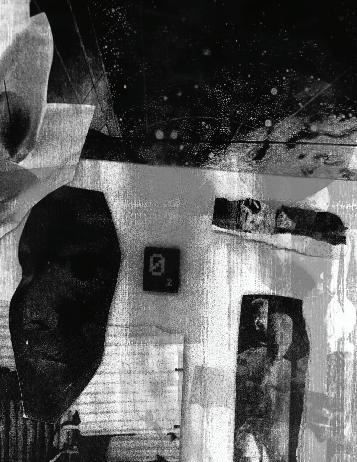coz mcnooz



We just finished a wonderful commencement at Redlands. The CAS ceremony moved to the football field, but our celebrations stayed put on Bekins lawn. We’ve collapsed senior dinner and commencement into one ceremony, and it was a smash. Thirty-six graduates joined your ranks, with degrees centered in everything from spatial analysis to radical pedagogy to helping others and more. Families were present – more than 200 attendees joined us on a perfect spring afternoon.
Many of you know that higher education is in its “turbulence era” but Johnston is thriving by being both adaptive and, on the other hand, working hard to preserve what makes Johnston the powerful place it has been for many of us. We’ve adapted: modernizing many of our processes from contracts to evaluations and graduation reviews, and even the dreaded addendum form; the digital has come to complex. We’ve also preserved so much of the culture that makes Johnston distinctive: each student crafts their own education, graduation reviews are still full of tears of joy and jokes aplenty. This year, I even signed my second set of divorce paperwork as a commemoration of the moment. Joselyn Rivas, our Registrar, will make her formal introductions in this issue.
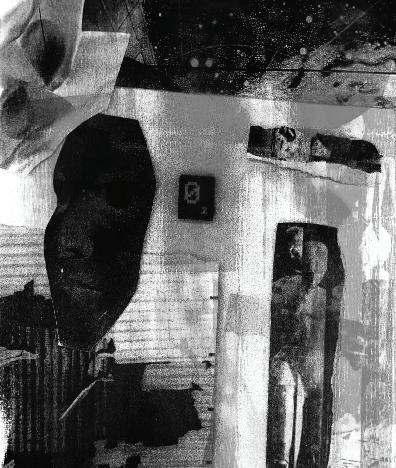
Students still help us build and articulate our curriculum. This semester, we had student-taught courses in Inclusivity in Wilderness Education, Communication and Culture, Video Game History and the World, and Storytelling Across Different Mediums, and Improv for Life. Bill McDonald reprised his classic seminar on Ovid, and I frequently saw students huddled together in the Jimmy Room deep in collaborative thought and investigation. He’ll share some thoughts on teaching this semester. Curriculum for next fall is equally exciting: Buddhism and Global Citizenship, Data Storytelling, Queer Literary Resistance, and so much more, is on the books. We’ll welcome a new batch of first year students into these seminars in August.
Seniors were going for broke; I saw fashion shows and read honors defenses in community solar; they gave outstanding presentations and the Women’s, Gender, and Sexuality annual conference; one
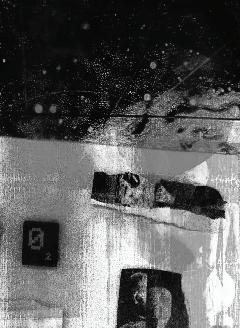
enterprising senior started their own pop-up nail salon––I chose an iridescent purple for my manicure when I had the pleasure of booking an appointment. We had plenty of fun as we learned and worked: I witnessed a kickball game in Sylvan Park that was a set piece in a film that saw teams from Bekins and Holt competing in a heated rivalry –which made it possible for two sworn enemies to fall in love. Very Shakespeare. Very Johnston.
These are just the smallest snapshots of an endeavor teeming with life, and community, and struggle.
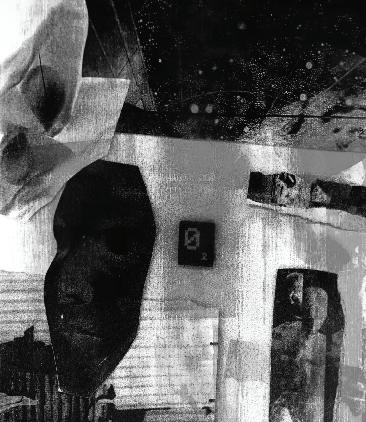
Some students will report in this volume of how they have been supported by Johnston Alumni. Your donations and mentorship have enabled them to study abroad, craft unique senior projects, eat when they were hungry and be housed when they needed help, have support to have books and materials for class and so much more. The Director’s Discretionary Fund supports our goal: to give each person who wants it the opportunity to pursue learning on their own terms, personalized and participatory. I want to thank you on their behalf, and mine.
What is going on right now? Well, we’ve got five May Term courses on the books, and they are full to the brim. Julie Townsend is co-teaching a class on Southern California Museums with rising senior Emily Hernandez. English Professor Dr. Heather King asks this May, Was the Book Really Better? An alum, Luca Acero, is assisting her in this course, and will share some thoughts on returning to community to work alongside a faculty member. Fred Rabinowitz continues to teach Psychology of Interpersonal Relations each May. Resident Directory Anthony Castellon is working with a team of Johnston Students at Community Orientation Planning. I am writing this letter from an airplane on my way to the Salzburg campus where, with Kelly Hankin, I’ll co-teach European Visual & Media Studies in Austria and Berlin, Germany. Nearly a dozen students were provided support through the Travel Fund in order to make this opportunity real.
The materials in this volume speak to a moment of change and growth. I want to thank Maggie Ruopp, whom I first taught as a student ten years ago, for her amazing work as the Johnston Operations Specialist. Johnston works because people who care about it work hard to nourish it, protect it, and advocate for it. Maggie has a note in this issue of the Coz, after which she’ll move on from Redlands to pursue other paths in life.
Finally, HOLD THE DATE! We have started planning for the 55th Renewal, which will take place February 17-19, 2024. I’ll begin communicating frequently about planning soon. Stay tuned!
Not all of you know me, but I’ve had the privilege of meeting many of you over the last eleven years, first when I was a student, then as one of the beating staff hearts that keeps Johnston running. I’ll be leaving Johnston, and the University of Redlands, at the end of June this year––it’s time to take what I’ve learned and see what new things I can make. It is impossible to articulate my love and gratitude for Johnston fully, especially in a short letter rather than a rambling, gushing monologue on stage with a microphone, which is my preferred way to share senti ments. The many jobs I’ve held in Johnston have given me countless opportunities to learn new things and go through the full range of human emotions and experiences, from pure joy to jump-scare crisis. My time here––the people I’ve worked with, the students I’ve helped, the alums I’ve traveled with––is something I’ll never be able to replicate. Johnston is a singular place and I am so glad to be an alum so that I don’t need to truly leave it behind.
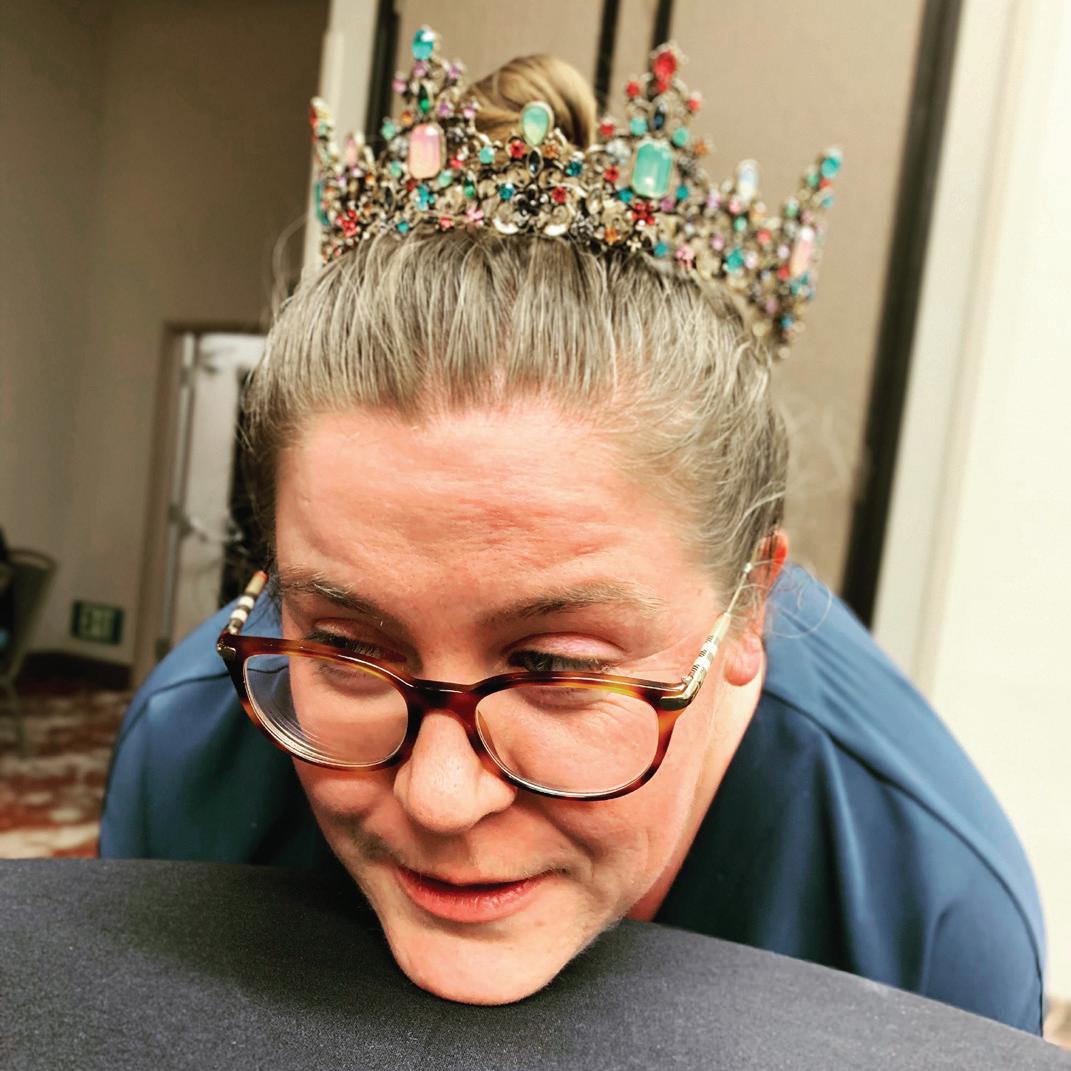
Thank you all for the kindness, love, and support you’ve shown me over the years and that you continue to show to Johnston. You are the best alumni in the world and it’s been a great honor to work with you for the last seven years.
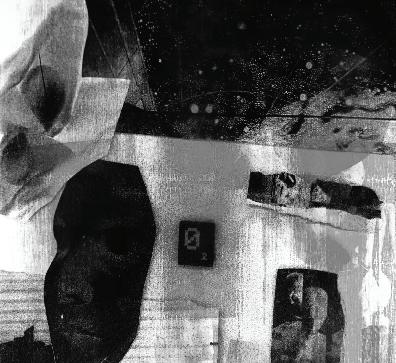
My name is Joselyn Rivas, Johnston Registrar extraordinaire! Since mid-fall semester 2019, I took over the Johnston Registrar position, which has been a true privilege and honor. I had the pleasure of work ing with Teresa Area before she retired, where she helped me really understand what Johnston was all about and how crucial our role played amongst the community and center overall. Since coming on board, I was grateful for the warm welcome I received from the Johnston staff but also all of YOU, the students and alums. These last couple years have been a true roller coaster, professionally and personally. From nav igating a pandemic to sophomore grad contracts and senior grad review com mittees all online, to then returning to campus. But we weathered the storm in community and now here we all are.
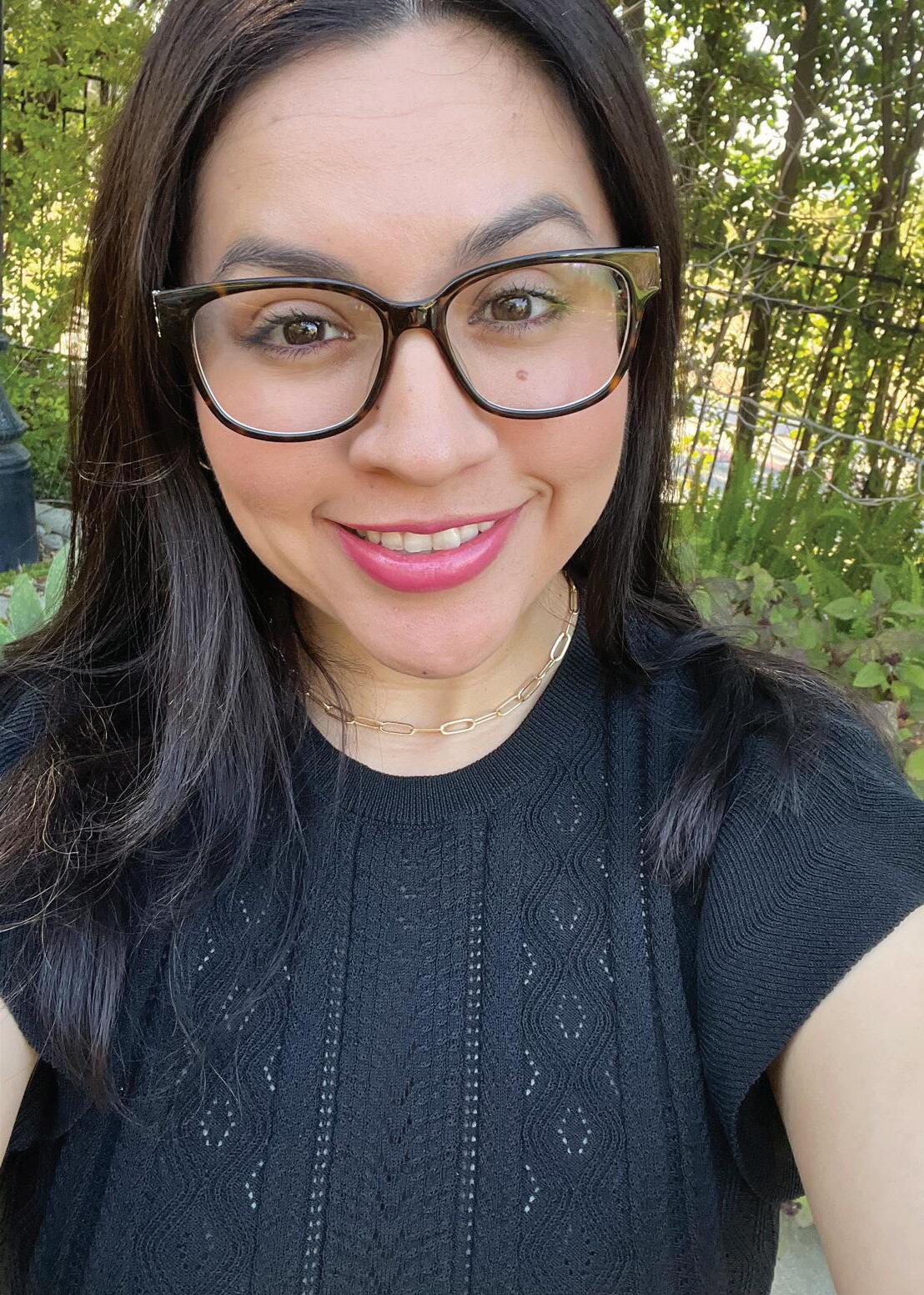
- November 12, 2022, I got married, so some of you might remember me, as Joselyn Gaytan. I got to share this unforgettable day with my Johnston Family
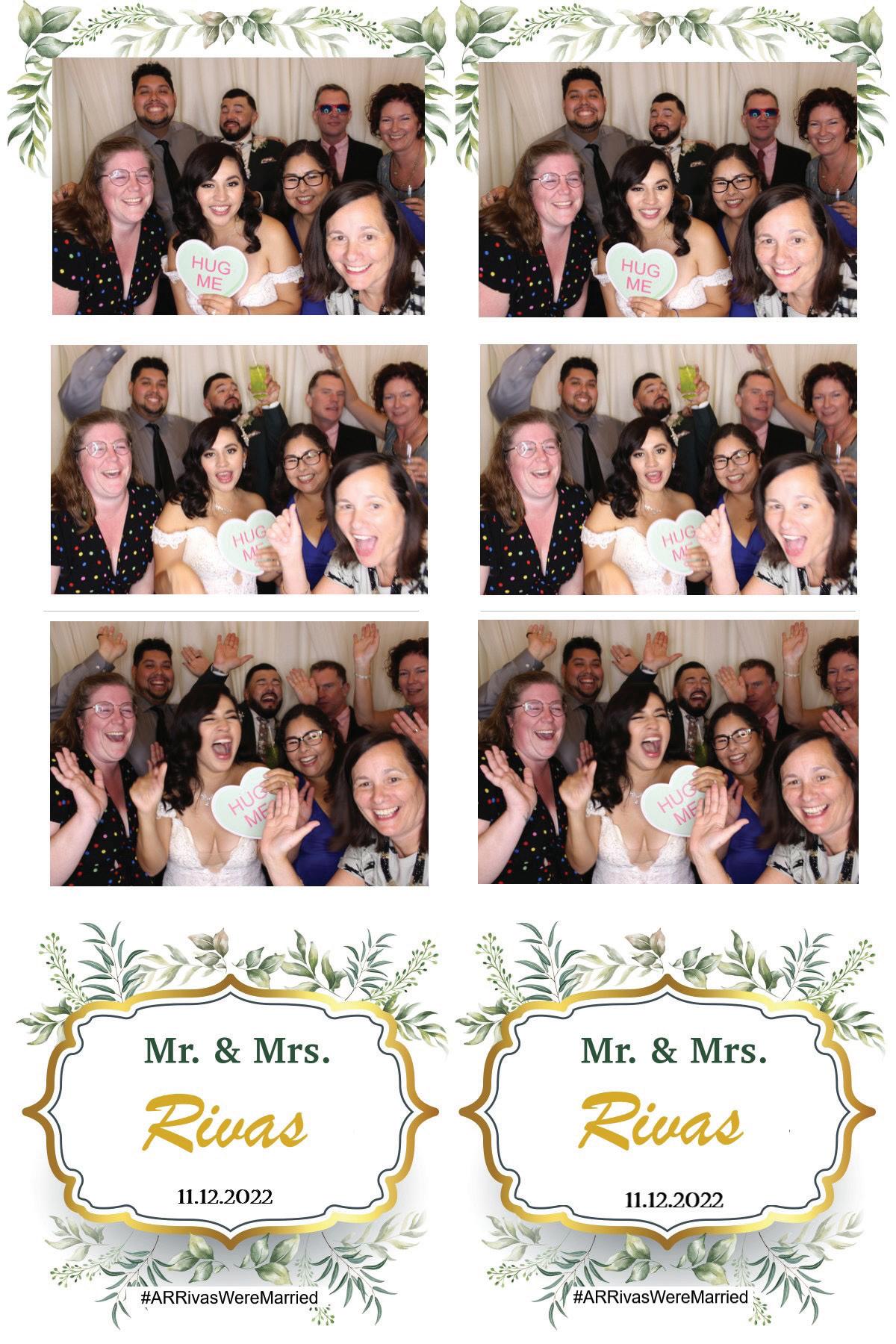
- Proud alumna from the School of Education where I received my Master’s in Higher Education
- I love to meditate and journal
- Favorite music- Reggeaton
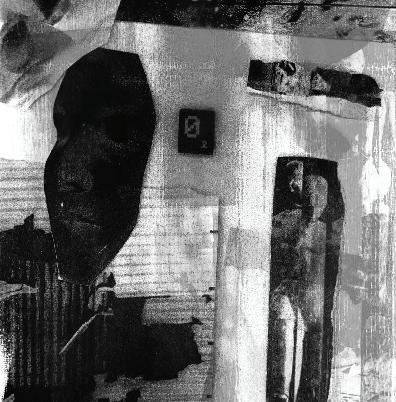
I hope you are all thriving in the wonderful career paths you have set forth for yourselves. There’s no place like Johnston, and I am truly grateful to be a part of this one-of-a-kind community.
Facilitating Construction of Communications was a wonderful experience! We had a small class, so we got to have intimate and thoughtful discussions about a variety of writers and effectiveness in composition of their work. We read Edward Said, Joan Didion, Frantz Fanon, listened to NPR and Latino USA, watched Amelia Dimoldenberg's Chicken Shop Date series, 79 Questions with Vogue, and Parts Unknown with Anthony Bourdain. Final project presentations were exciting! From Sylvia Plath, to skin care blogs, to the SoCal punk scene of the 90s, we had a lot of fun exploring how different mediums of communication affected readers and society.
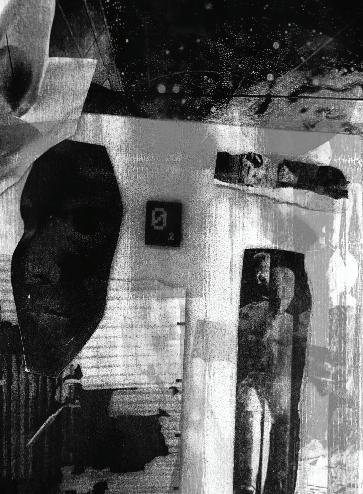
I remember the day I found out I could go, I started crying in the cafeteria from pure excitement and probably too much coffee. It was the end of my junior year and I thought I was never going to be able to travel abroad in college because the pandemic had stripped away my plans to spend a semester elsewhere. It all happened so fast. A teacher sent me an email two days before, random and thoughtful, urging me to try and get on the Environmental Science Department’s May-term trip to the rainforest of Panama. I was intrigued and sent an email of interest to the professor leading the trip, to which he responded with apprehension to let me in, the trip was full, and leaving in 4 weeks. I met his doubt about my attendance with an excited and passionate attitude, I urged the trip director “you have got to let me come!” I told Johnston faculty what I was trying to accomplish and they were prepared to help me. Two days later, from putting pressure on the trip leader, motivation from a mentor, and financial support from the Johnston college, I found out I was going to Panama.
Just as I found out I was going, I felt like I was gone. Arriving at the airport in Panama City, and stepping outside into the humidity, I was so obviously not in southern California anymore. It took a plane, a bus, walking across a flooded river, and the back of a Toyota pickup truck, to reach the dense Jungle I would soon get to know so well. I packed light, no makeup or fake eyelashes my classmates were used to seeing me in, only rubber boots, long sleeves, and a positive attitude. As a group, we brought 2 drones, 10 clinometers (tools to measure tree height), 10 measuring tapes, 15 field journals, 5 laptops, and our previous knowledge of environmental science.
For the next month, 15 University of Redlands students stayed at the Mamoni Valley Preserve in central Panama in tents and hammocks. We spent our days hiking to the depths of the preserve tracking tree height as an indication of forest succession. It was intense, long days, being rained on, and walking up the steepest slopes, but there was no room for complaining when we were trudging through the most magical untouched land. We saw monkeys, snakes, tucans, frogs, insects, and plants I didn’t even know existed. We jumped off waterfalls, hugged the oldest trees in the forest, and climbed to the tips of the nearest mountains. I was also experiencing the culture of two indigenous communities, learning about their historic conservation practices. I had spent my college career learning the skills and values of geography and environmental science in classrooms, but all four years in a classroom couldn’t teach me what a month of experiencing the jungle did. Lessons flowed out of every hike, my school work made me smile and sweat, conversations touched my heart, and every night I went to bed excited for the next adventure
By the end of the month, our group developed a portfolio of multiple maps about forest growth, invasive species, and carbon sequestration to present to the stakeholders of the preserve. It was exciting to share what we observed and documented, but it was when the management of the rainforest asked me for advice on their operations, that I registered the importance of my work. We had vital information to share about the current landscape of the preserve, it was accurate, digestible, and prepared for ecological decision-making. I really felt the importance of my geography skills. I saw that good mapping is what we need to produce positive change for our environment. Environmental activists can’t operate aimlessly but need a map to follow, and I helped prepare one! This trip provided the most beautiful cross-cultural and experiential learning opportunity, I could’ve ever asked for. Unexpectedly, it helped me believe in myself and the importance of my work. I couldn’t have experienced it all without the Johnston College and its faculty believing in me. I almost didn’t go, but this community raised me up and sent me where I needed to be. The rainforest and I, thank you, thank you very very much.
Delia Wahby ‘23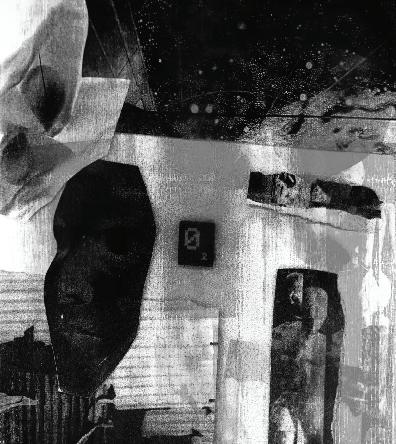
I’m Luca Azenaro-Acero, a Johnston alum from the class of 2022. I’ve been working as a teaching assistant since then for professors Sharon Oster and Heather King. It’s been an incredibly gratifying experience that has reminded me why I love this community and the unique ways of teachingand learning that Johnston employs.
My time in Johnston was marked by helpful alumni and more experienced students who cared about making my time in the community better. Maggie Ruopp, a Johnston alum employed by the University and beloved by all in the community, was one of the first faces I met when I arrived as a transfer student. She greeted me with such enthusiasm and knew the answer to every question I had, both community-wise and academically. Her grounding presence helped me to feel comfortable as I tried to navigate the already turbulent process of adapting to college life.
When the pandemic hit, everything was thrown into disarray. My own work ethic took a nosedive, and a lot of new freshmen came into the University under less than ideal circumstances. During that summer, I became an FYS peer advisor in order to help students as they tried to integrate into college under the shadow of the pandemic. Helping students in such a bizarre situation helped me to realize that I really do care about incoming students and their experiences.
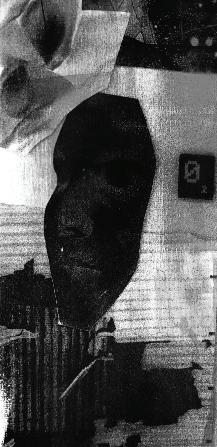
Once I graduated, I was unsure of what to do next. I felt the same kind of listlessness and concern about my next steps as I did when I first arrived at the University. Thankfully, my Johnston family had the answers once again. I began work as a teaching assistant, and I felt a real purpose begin to form. Helping students navigate Johnston, in both its social and academic facets, felt truly fulfilling.
These were people like me, creative students who liked a bit more of a flexible and innovative approach to academic learning, trying to figure out their place at the University. Working with them as they learn what they want to do, helping them with their first contracts, and learning from them as they bring new and fascinating ideas to each discussion has been an absolute pleasure. I was able to give back to the community that made me feel so welcome four years ago.
I am truly grateful for the opportunities that Johnston has given me, and continues to give to all the wonderful students who join our community. Working here has been a delight, and I hope to continue contributing to the community for a long time.
Luca Azenaro-Acero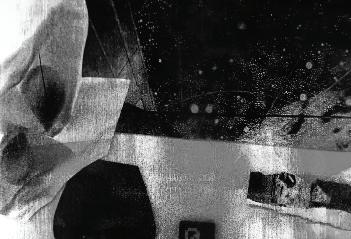
Like so many Johnston courses, “Ovid’s Metamorphoses” has a history well rooted in the Center. In the spring of 2012 I teamed up with graduating senior Rachel Reynolds, a poet and Latinist; neither of us had read the book cover-to-cover before, so it was an adventure. The following summer the two of us took Ovid on the road to Asilomar for a week-long reprise with seventeen Johnston alums. In 2015 Rachel’s protégé Nora deVita, now a senior herself, helped organize the third version. So this spring I finally screwed up my courage to read Ovid’s revisionist epic solo with fourteen current Johnstonians and CAS literature/psychology students. We’ve had a very good time: small group agenda building; two soirées, including an evening of Ovid’s tales in painting/sculpture; plenty of insightful, entertaining discussion. We’ve relished the poem’s rhetorical brilliance, psycho-social insight, and wicked satire, all of which promoted spirited and candid exchanges on the dozens of controversial subjects—rape, murder, theodicy, heroic masculinity, the nature of art. New this time has been a collection of contemporary poems and prose pieces that confirm Ovid’s uncanny relevance for our era.
Ovid just keeps on metamorphizing: his satire of conservative Augustan ideology critiques our politics more closely than we 2012 readers could have imagined; his repeated inquiries into the ethics of representation is a hot topic; his brilliant personification of Rumor describes Twitter and trolling to a tee; his rejection of war and his critiques of patriarchy from within complement his dozens of positive portraits of women. And all this is made more relevant by the current plight of the humanities in American education: underfunded, under-enrolled by a third across the country’s colleges, their majors “guaranteed to make you poor” as their “input >> output” efficiency for Right Now is challenged by crude interpreters of branding and the market. For me the liveliness of today’s course reinforces my stubborn conviction that the humanities, even works of such ancient canonical status, can draw /madden/delight/inform/challenge digital-native readers born in the 21st century just as easily as they have earlier generations, and that they have real, practical consequences—long list on request—for its graduates.
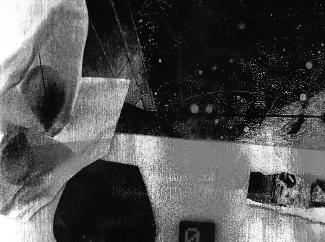
It’s a small sample size, I know, but Rachel, now Rachel Price and a new mom, would be proud to see what she helped create.
Bill McDonald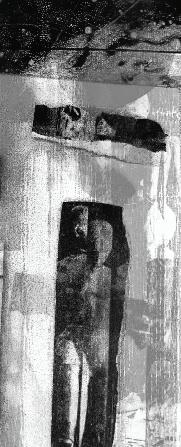
Orion Armstrong

Story Telling
Sofia Balingit
Psychology & Culture
Elizabeth Beck
Law and Advocacy: Creating Lasting Change
Harrison Bukacek-Frazier
Analyzing Psychology Through Biochemical, Cultural, & Genetic Lenses
Jared Carney
Storytelling Across Different Mediums
Kate Chase
Publishing and Visual Design
Kayla Conley
Entertainment Business
Elana Denver
Environmental Science and Ethics
Lauren Diaz
Intersectional Consciousness within Marginalized Communities
Samantha Ferguson
Ecomedia, Fashion, and Entrepreneurship
Arianna Garcia
Pedagogy of Education
Dharma Hall
Translation and Storytelling
Keil Ireland
Sustainable Business Management & Spatial Studies
Willa Janszen
Creative and Therapeutic Responses to Criminality and Injustice

Rachel Kanevsky
Ethical Approaches to Acting
Jessica Kaufman
Psychology and Culinary Arts
Alexandria Kuhlman
Entrepreneurship with an Emphasis on Education Reform
Alexandra Kynev
Culture and Communications
Isiah Marmolejo
Reconstruction of the Visual Narrative
Angella Montano
Global Education and Development
Joette Orman
Integrative Healing
Quinn Orr
Psychology and Outdoor Education
Aka Plaza
Psychology and the Intersections of Gender and Sexuality
Charlene Sangalang
Neuromusicology: Intervention for Speech & Language Development
*Departmental Honors
Timony Sherry
Equity in Education and Athletics
Ella Staats
Emphasis: Multimedia: Critical Intersections between Art, Film, and Creative Writing

Courtney Stewart
Emphasis: Holistic Athletic Development & Media Creation
Trevor Stewart
Emphasis: Sustainable Equity Through Spatial Design
Margaret Strickler
Emphasis: Food Studies: Society & Culture
Sierra Thompson
Emphasis: Fine Arts and Holistic Education
Peter Tupou
Emphasis: Building Community with Harmonization
Juan Vargas
Emphasis: Politics: Philosophy, Culture, & Practice
Delia Wahby
Emphasis: Geospatial Planning for Sustainable Communities
Marissa Weiss
Emphasis: Cross-Cultural Journalism
Ayled Zazueta
Emphasis: Journalism and Perspectives Across Cultures
